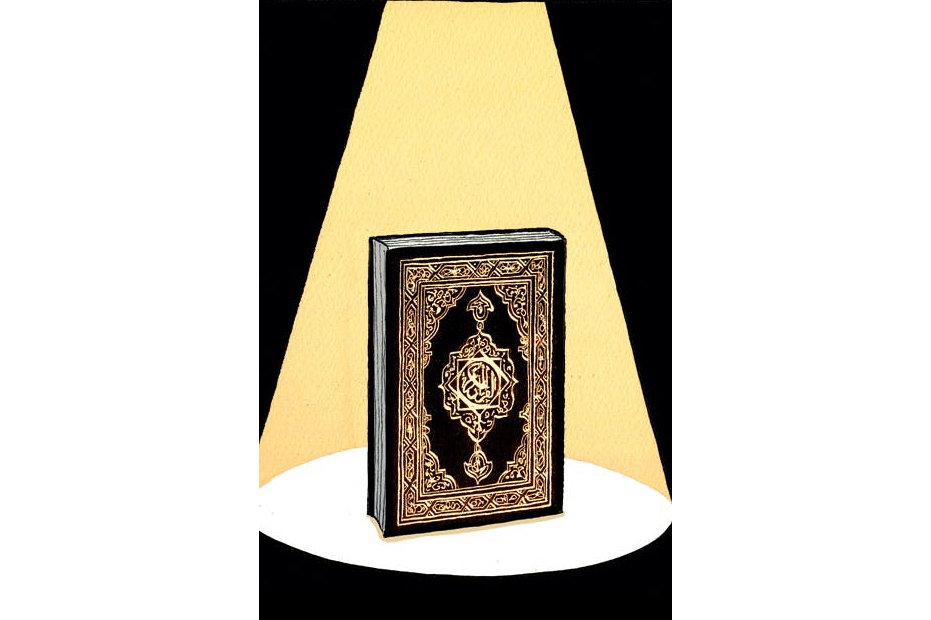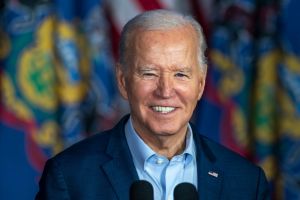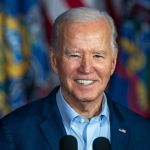This article is in
The Spectator’s November 2019 US edition. Subscribe here.
Ilhan Omar will come up a lot in the 2020 election. She’s part of the ‘Democratic Squad’ of congresswomen that Republicans hate, along with Alexandria Ocasio-Cortez, Ayanna Pressley and Rashida Tlaib — but she outshines them all by being a foreign-born hijabi who supports boycotting Israel and is accused of immigration fraud. If Donald Trump goes after Omar, it’ll polarize Democrats around her and conservatives around him, which is the role that Islam seems condemned to play in American politics: a trigger word to whip up the base. It prompts the question, why are Trump supporters so scared of Islam? And are their fears justified?
It’s easy to slot this prejudice into centuries of irrational panic about immigrants and outsiders, from the Irish, Jews and Japanese to Germans like Trump’s paternal forebears but concern about Islam is rooted in concrete recent experience. The 9/11 attacks were the most devastating terrorist acts in American history, and the culprits were indisputably Muslim, even if they weren’t models of the faith. In an all-American twist, some of the killers built up their courage before the hijack in a strip joint in Las Vegas. They didn’t leave a good impression; one of the girls said Marwan al-Shehhi ‘spent about $20 for a quick dance and didn’t tip more’.
After 9/11, George W. Bush could easily have embraced a populist anti-Islamic agenda to rally the base. Yet, to his credit, he did the opposite. Bush went to war with al-Qaeda and Saddam Hussein, all the while insisting that Islam itself was a religion of peace. Outwardly, conservatives expressed wartime loyalty to their president. In their hearts, the administration’s sophisticated distinction between Islam and radical Islamism never took hold. In fact, it bred disaffection.
Many grassroots conservatives assumed that Republican elites signed up to this political correctness out of moral cowardice, and fear of being called racist by Democrats and left-leaning media. As if to confirm it, conservatives who dared to ring alarm bells about Islam risked social ostracism. And so, ironically, the right cast its campaign against Islam — in effect, against the freedom to practice a religion — as a crusade for free speech. Activist Pamela Geller claimed: ‘Telling the truth now is equated with “hate” and “bigotry” in an attempt to silence and demonize the truth-tellers.’ What such people were waiting for was a politician with the guts to speak their language.
Enter Donald Trump. ‘Islam hates us,’ he said on the stump. ‘I don’t notice Swedish people knocking down the World Trade Center.’ Britain, he tweeted, has a ‘massive Muslim problem’. Fanatics had ‘infiltrated countries all over Europe by posing as refugees’. If elected, he promised the ‘total and complete shutdown of Muslims entering the United States’. Many pundits presumed that Trump’s attacks on George W. Bush and the Iraq War would hurt him in the Republican primaries. The opposite was true. The Republican base was bubbling with anti-Islamic sentiment, and here was a man unafraid to speak his mind, to launch a right-wing counter-jihad. Trump, as far as they saw it, understood that America’s real enemies weren’t secular dictators like Saddam or Bashar al-Assad, but everyday followers of the ‘religion of peace’.
In practice, this means that the Trump administration isn’t particularly concerned about who runs the Middle East. On the contrary, Trump has formed an unlikely alliance with Saudi Arabia, despite its medieval outlook and export of fundamentalism. Islam, it seems, is fine by the White House so long as it limits itself to the Islamic world. Hence the president has done his best to ban Muslims from certain countries moving to America, and justified the Great Wall of Mexico as a blockade against Islamists. The migrant caravan making its way through Central America contains, Trump says, ‘criminals and unknown Middle Easterners’.
Trump portrays Britain as a caliphate-in-the-making, a view that both alarms and affirms the American right. Last year, journalist Andy Ngo — now famous after being assaulted by antifa in Portland, Oregon — penned a nightmarish account of a walking tour of London. On Britain’s streets, Ngo wrote, Muslims and non-Muslims keep their distance, and ‘avoid eye contact with the other’. Reading this, one couldn’t help but chuckle. If Muslims are avoiding eye contact, then they must be part of the national family: Brits would rather drop down a drain than say hello to a stranger.
In fact, British Muslims confound many of the American right’s crude ethnic stereotypes. Sajid Javid, the chancellor of the Exchequer, is the son of Pakistani immigrants. The man who has to find the money for Brexit has a Muslim background, although you’d hardly know it: the only religion practiced in his home is his wife’s Christianity. On the other hand, Sadiq Khan, the mayor of London, is an observant Muslim, but he’s also a socialist who attends Pride rallies.
Given the range of Muslim experience, and given that Muslims have been in the UK for more than a century, it’s very odd that the US media ignore all of this in favor of elevating non-Muslim far-right Britons regarded by most of their fellow countrymen as an embarrassment. People such as anti-Islam activist Tommy Robinson, a hooligan who spends his time in and out of jail, most recently for contempt of court. Why so many American conservatives go gaga for Robinson is confusing. Don’t they believe in law and order? Or religious observance? Or family?
These are all facets of Islamic culture, which is why the British center-right has made such a play for Muslim votes, in the hope that Islamic social conservatism will turn them into Conservative supporters. It hasn’t worked. In the 2017 general election, a stunning 85 percent of Muslim voters backed the Labour party.
One challenge is that while there is a healthy Muslim middle class, there’s also a lot of poverty. The House of Commons reported in 2016 that British Muslims ‘suffer the greatest economic disadvantages of any group in society’, including poor pay and an unemployment rate twice that of the general population. This reflects not only discrimination, but also cultural factors such as women staying at home to do the housework.
In contrast,American Muslims are as likely as Americans in general to have a graduate degree or to earn more than $100,000 a year, though they’re also more likely to earn below $30,000, and three times as likely to be out of a job and looking for work. America’s wealthier Muslims tend to be middle-class immigrants and America’s poorer Muslims, the substantial Nation of Islam element included, tend to be native-born. In sum, many Muslims are drawn to left-wing candidates out of old-fashioned class interest.
Another problem is Israel. While western conservatives have become cheerleaders for the Jewish state, Muslims, for obvious reasons, overwhelmingly favor the Palestinians. Ilhan Omar herself has been accused of anti-Semitism. It’s a charge she denies, although she has apologized for hurt caused and deleted some tweets. Her support for boycotting Israel puts Democrats in an awkward position. Liberals define themselves as champions of a rainbow coalition of minorities, marching arm in arm towards an electoral majority. But what happens when one minority in their coalition turns on another? Europe has seen a rise in anti-Semitic attacks by Muslims, and the American right has connected the dots between this and a recent wave of migration. In a surreal historical development, conservatives increasingly see themselves as defending groups that threaten to lose out if Islam ‘wins’ — feminists, for instance, or gays, a group that conservatives previously didn’t give a damn about.
The idea of a ‘Clash of Civilizations’ has reordered the right’s priorities and made conflict with American Muslims unavoidable — central, even — to conservative populism. This is a tragedy. It means Muslims are treated as caricatures, that they are compelled like so many other minorities to become stalwart Democrats simply because Republicans are so horrible to them.
In constantly railing against Muslims, conservatives are also denying themselves a conversation with one of the great faiths, a discussion that might cause them to reflect more intelligently upon the failings of the West. After all, it’s not Muslims who made Christians stop going to church, having babies, being faithful to their wives or practicing ethical capitalism. It’s easy to distract ourselves from the slow erosion of American ethics by obsessing over the mysterious new arrivals, even when Omar, by winning a seat in Congress, proves she’s as integrated as apple pie. Omar hasn’t shipped a single job to China or denied anyone healthcare. You can rely on Christian conservatives to do all of that.
This article is in The Spectator’s November 2019 US edition. Subscribe here.



















